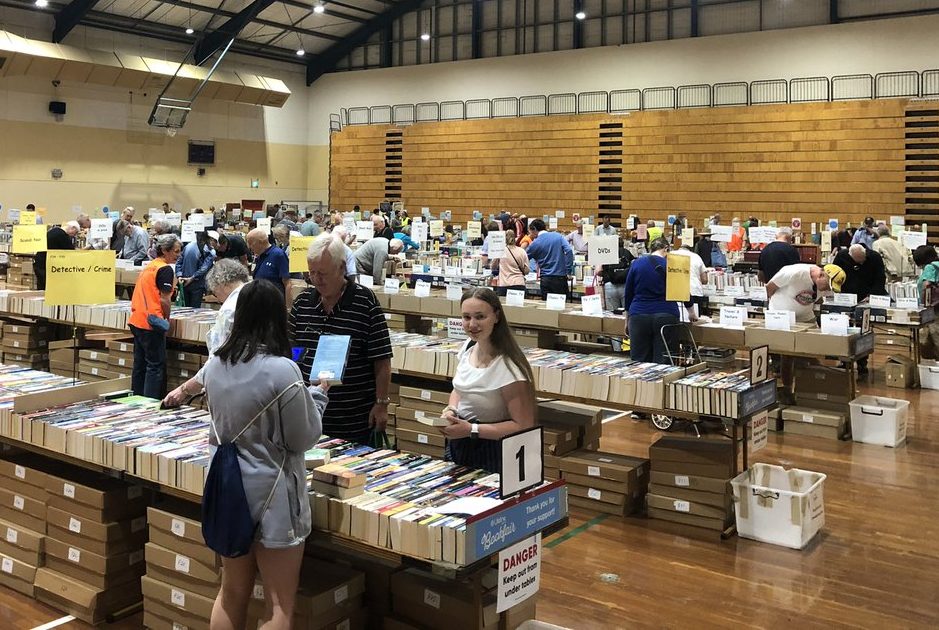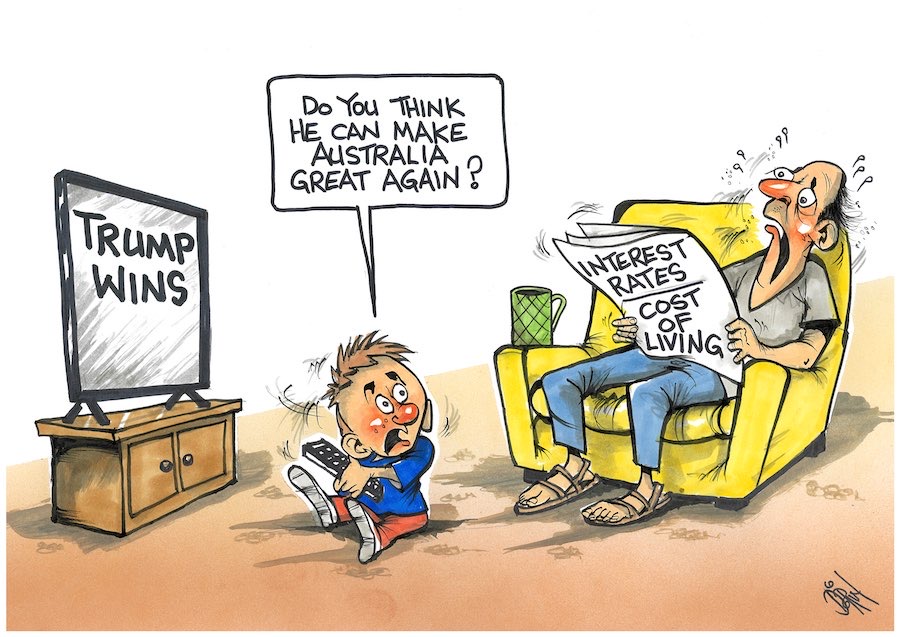
“Unlike the authors, the charities that sell secondhand books pay no tax, so they get a double dip into the public purse,” says veteran author and “CityNews” columnist ROBERT MACKLIN.
IN a recent “Gadfly” column, I decried Australia’s massive secondhand book market that makes vast profits without paying a cent to the creators of the product they sell.

Some of the worst offenders, I noted, were religious charities – such as Vinnies, Lifeline and the Salvos. Unlike the authors, the charities pay no tax, so they get a double dip into the public purse.
It was time, I suggested, to devise a scheme like the one applied to other creative arts – music, for example – which is protected by a payment of royalties each time a song is used. I offered to serve on a committee to see if something similar could be devised.
The column attracted plenty of attention, mostly from outraged Vinnies volunteers. However, a follow-up radio interview on Canberra 2CC’s “CityNews Sunday Roast” the other week put me on the spot. Do we really need such a scheme, they asked, and if so, how would it work?
Well, the authorial arts have been in national limbo since Gough Whitlam established the Australia Council and Public Lending Right (PLR) way back in the ’70s. For decades the Arts ministry has faded from view and even in the Albanese government it’s just tacked on to the end of Tony Burke’s Ministry for Employment and Workplace Relations. And that, Anthony, is just bloody shameful!
Authors, even the best among us, live a precarious financial life. No employer pays us superannuation; no one cares if we go on strike (except our partners or children) and since almost everyone thinks they have at least one book in them, we battle in a buyers’ market. Our competition is worldwide and includes the finest exemplars the planet has to offer.
What’s more, we’re at the mercy of fashion and external events. Special Forces biographies, for example, came and went. And during the covid years, no one wanted to read non-fiction; all they cared for was escapist mysteries to take their minds off the awful present.
Moreover, virtually all TV and movie options fell over, in my case two series that trembled at the very brink of production. So, yes, some new funding is necessary, and the secondhand market is a rip-off that should supply it.
I don’t claim to have all the answers; and I’m only concerned with Australian authors. But here’s a couple of ideas that might get the ball rolling. Let’s start with the hundreds of permanent secondhand bookshops and charity outlets across the country.
How about designing an attractive Aussie Authors Secondhand Fund (AASF) container for each checkout counter. The sellers could deposit a mere 20 cents per Aussie-authored book; and that surely would be no hardship. Australia’s wonderful posties could collect the funds on their regular rounds and deposit them in a single account at their Australia Post offices (which all have banking facilities).
Then there’s the many hundreds of school fetes and regular markets – all with book stalls. They, too, could be issued with an attractive AASF container and, in this case, perhaps the buyer could contribute the 20 cents per book. A local author would happily volunteer to transfer the funds to the nearest Australia Post.
By my back-of-the-envelope calculation, we could raise a tidy sum, provide a nice little refresher to our cultural life, and salve the conscience of the charities. Authors have already registered their works with the Public Lending Right team so once or twice a year, the funds could be distributed via the same sample system.
What do you think?
Who can be trusted?
In a world of spin and confusion, there’s never been a more important time to support independent journalism in Canberra.
If you trust our work online and want to enforce the power of independent voices, I invite you to make a small contribution.
Every dollar of support is invested back into our journalism to help keep citynews.com.au strong and free.
Thank you,
Ian Meikle, editor




Leave a Reply